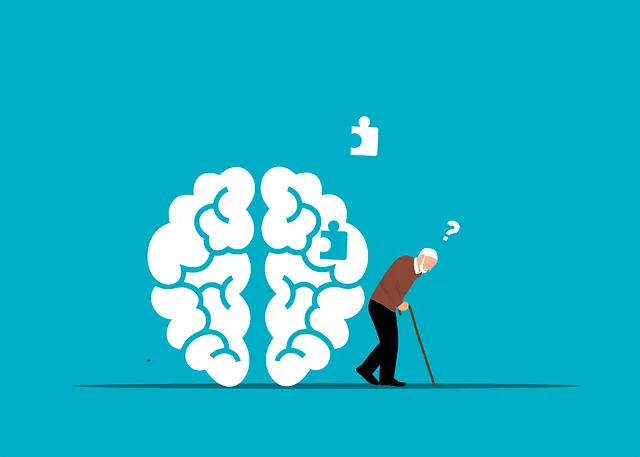Englewood Kaiser Permanente behavioral health services emphasizes mindfulness meditation as a powerful burnout prevention tool for healthcare providers. Regular practice enhances mental well-being, reduces stress and anxiety, and improves emotional regulation. Starting with short daily sessions, accessible through apps or guided meditations, cultivates self-awareness, resilience, and emotional intelligence. Their Community Outreach Program offers tailored guidance, while Mental Wellness Journaling Exercises and Mental Health Policy Analysis foster deeper connections and purpose. Incorporating mindfulness into daily life through simple practices like breathing exercises and mindful walking significantly improves quality of life.
“Discover the power of mindfulness meditation with guidance from Englewood Kaiser Permanente Behavioral Health Services. This comprehensive guide explores the transformative benefits of regular practice, offering a review of its positive impact on mental well-being. Learn simple steps to initiate your meditation journey and overcome common challenges. We provide practical tips to incorporate mindfulness into daily life, fostering lasting changes, as evidenced by the behavioral health services reviews. Uncover how mindfulness can unlock a calmer mind and enhance your overall lifestyle.”
- Understanding Mindfulness Meditation: Unlocking a Calmer Mind
- The Benefits of Regular Practice: A Review by Englewood Kaiser Permanente Behavioral Health Services
- Getting Started: Simple Steps to Establish Your Meditation Routine
- Common Challenges and How to Overcome Them
- Incorporating Mindfulness into Daily Life: Tips for Long-Lasting Changes
Understanding Mindfulness Meditation: Unlocking a Calmer Mind

Mindfulness meditation is a practice that encourages individuals to focus on the present moment, cultivating awareness and acceptance without judgment. By engaging in this ancient technique, one can unlock a calmer mind, leading to improved mental well-being. At Englewood Kaiser Permanente behavioral health services, reviews highlight the effectiveness of mindfulness as a powerful tool for burnout prevention strategies among healthcare providers. These professionals often face high-stress environments, making it essential to integrate practices like meditation into their routines.
This simple yet profound act of mindful presence helps in regulating emotions and fostering emotional healing processes. In today’s fast-paced world, where the demands on healthcare providers are ever-increasing, incorporating mindfulness can be a game-changer. Healthcare provider cultural competency training often emphasizes the importance of self-care, and mindfulness meditation is a key strategy to enhance resilience and overall mental health, ensuring professionals can continue to deliver quality care with compassion.
The Benefits of Regular Practice: A Review by Englewood Kaiser Permanente Behavioral Health Services

Regular mindfulness meditation practice has been shown to have profound effects on mental and emotional well-being, backed by numerous studies conducted by organizations like Englewood Kaiser Permanente Behavioral Health Services. Their reviews highlight how consistent engagement in Compassion Cultivation Practices can reduce stress, anxiety, and depression while enhancing overall life satisfaction. This ancient technique cultivates emotional intelligence, enabling individuals to better navigate challenging situations with increased calmness and clarity.
Englewood Kaiser Permanente’s behavioral health services emphasize that regular meditation not only promotes mental wellness but also fosters meaningful connections with others. Their Mental Wellness Coaching Programs Development encourages individuals to integrate mindfulness into daily routines, leading to improved focus, enhanced self-awareness, and greater resilience in the face of life’s demands. This holistic approach to well-being underscores the transformative power of mindfulness meditation when practiced regularly.
Getting Started: Simple Steps to Establish Your Meditation Routine

Starting a mindfulness meditation practice can seem daunting, but with simple steps, you can establish a routine that supports your mental health and well-being. Begin by finding a quiet space where you won’t be disturbed for at least 10 minutes. This could be a corner of your home, a park bench, or even a peaceful spot in your office during lunch break. Set a consistent time each day to meditate; morning is often ideal as it sets a calm tone for the day ahead.
Englewood Kaiser Permanente behavioral health services reviews highlight the power of regular meditation in managing stress and anxiety. Start with short sessions, focusing on your breath and observing your thoughts without judgment. Apps or guided meditations can be excellent tools for beginners, offering step-by-step Crisis Intervention Guidance to help you navigate challenging emotions. Over time, expand your practice by exploring different techniques, such as body scans or loving-kindness meditation, to enhance your Communication Strategies and cultivate a deeper sense of self-awareness.
Common Challenges and How to Overcome Them

Many individuals looking to incorporate mindfulness meditation into their lives face common challenges. One such hurdle is maintaining consistency in practice due to busy schedules and life demands, a problem that even the most dedicated meditators encounter. At Englewood Kaiser Permanente behavioral health services, we understand this struggle and offer guidance tailored for modern-day practitioners. Our Community Outreach Program Implementation focuses on accessible meditation techniques suitable for all lifestyles, ensuring everyone can find time for mental wellness.
Another obstacle is staying motivated when progress seems slow or elusive. This is where Mental Wellness Journaling Exercise Guidance comes into play. By documenting your journey, you gain clarity and perspective, enabling you to celebrate small victories and adjust your practice accordingly. Additionally, engaging in Mental Health Policy Analysis and Advocacy can provide a broader perspective on well-being, fostering a sense of purpose and resilience that supports your meditation practice.
Incorporating Mindfulness into Daily Life: Tips for Long-Lasting Changes

Incorporating mindfulness into your daily routine can lead to significant improvements in mental well-being and overall quality of life. It’s about bringing your complete attention to the present moment, acknowledging your feelings, thoughts, and bodily sensations without judgment. Start small by setting aside just 5–10 minutes each day for practice. Simple activities like mindful breathing, body scans, or walking meditation can help anchor you in the present. Engage your senses; notice the textures around you, the sounds of nature, or the taste of your morning coffee.
For lasting changes, integrate mindfulness into everyday tasks. For example, when eating, savor each bite, appreciating the flavors and textures. During walks, focus on the rhythm of your strides and the environment around you. If dealing with stress, practice mindful conflict resolution techniques learned through programs like those offered by Englewood Kaiser Permanente behavioral health services reviews. Regularly engaging in mental health education programs designed to teach mindfulness can provide valuable tools for managing challenges and cultivating a sense of calm and resilience, supported by trauma support services as needed.
Mindfulness meditation, as advocated by Englewood Kaiser Permanente Behavioral Health Services reviews, is a powerful tool for calming the mind and enhancing overall well-being. By integrating simple practices into daily routines, individuals can unlock profound benefits, including stress reduction, improved focus, and increased emotional resilience. Overcoming common challenges with strategic approaches ensures consistent progress. Adopting mindfulness extends beyond meditation sessions, fostering lasting changes in how we navigate life’s complexities.






